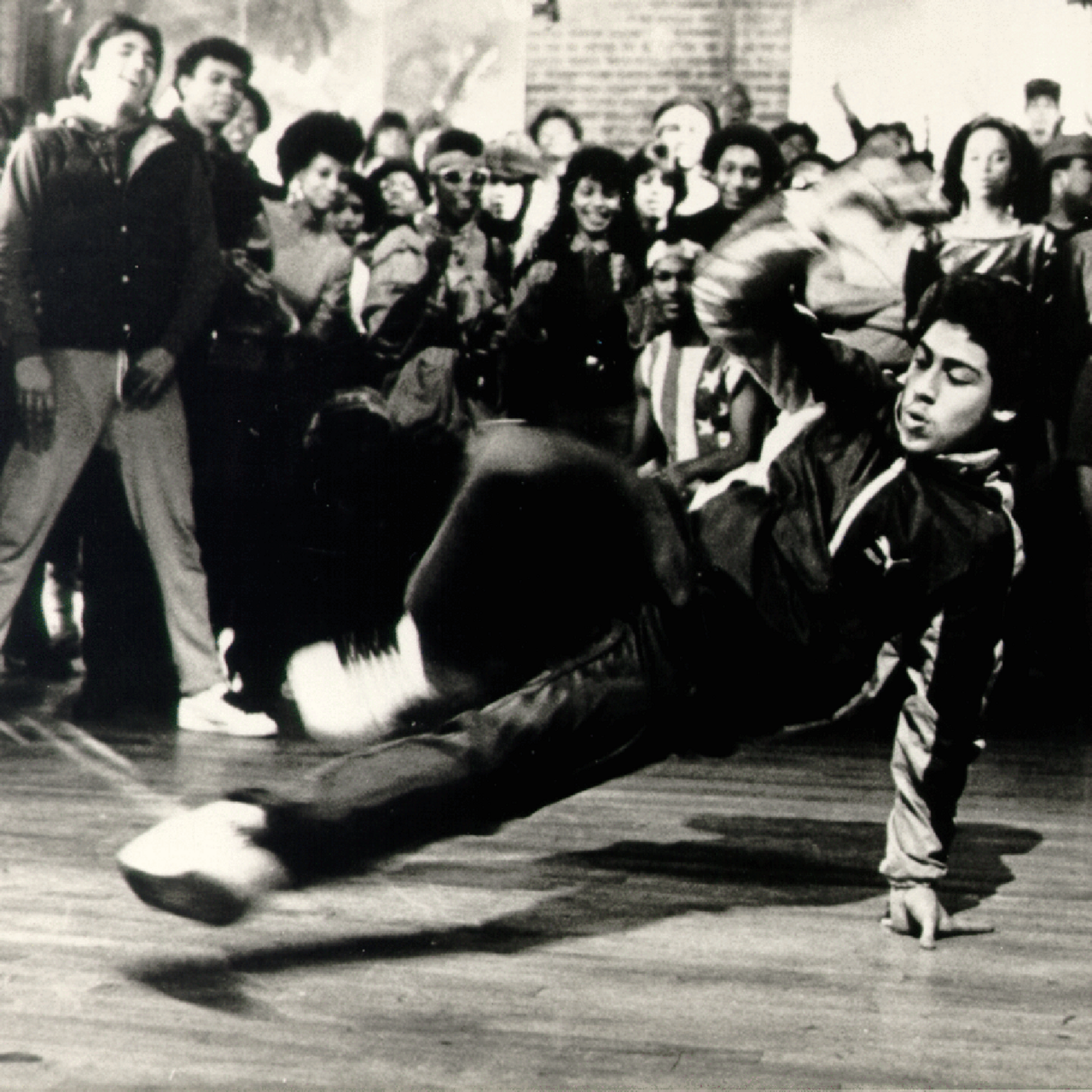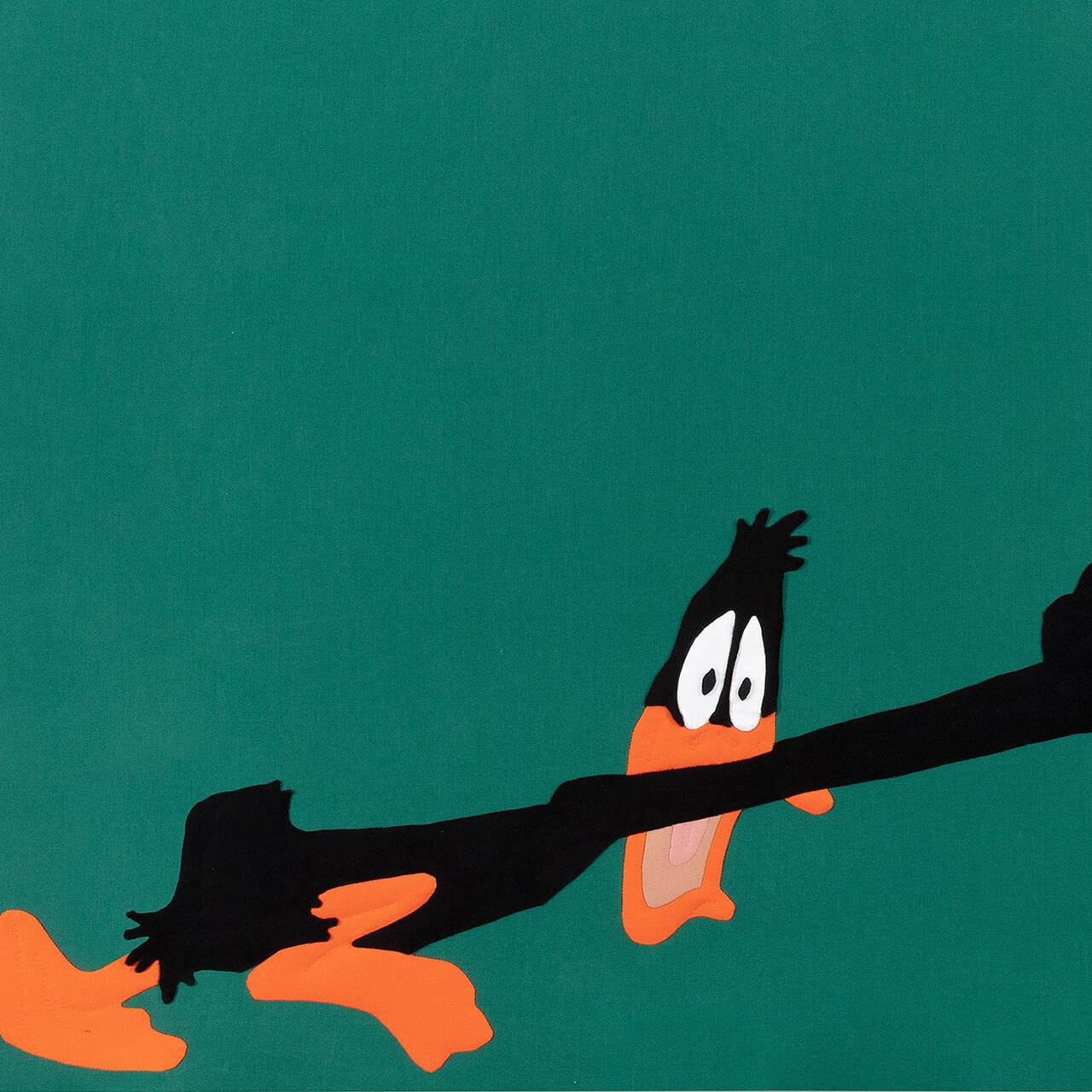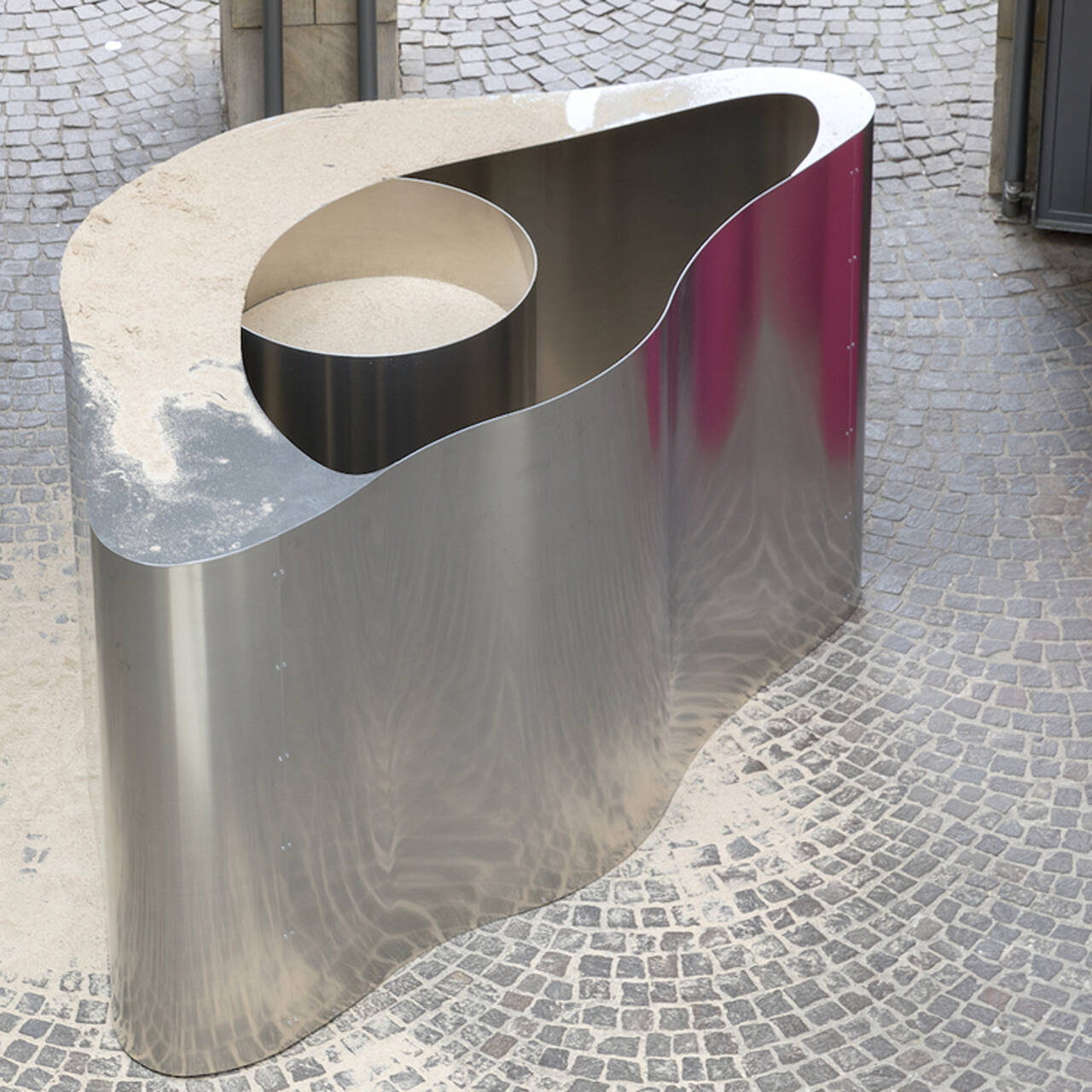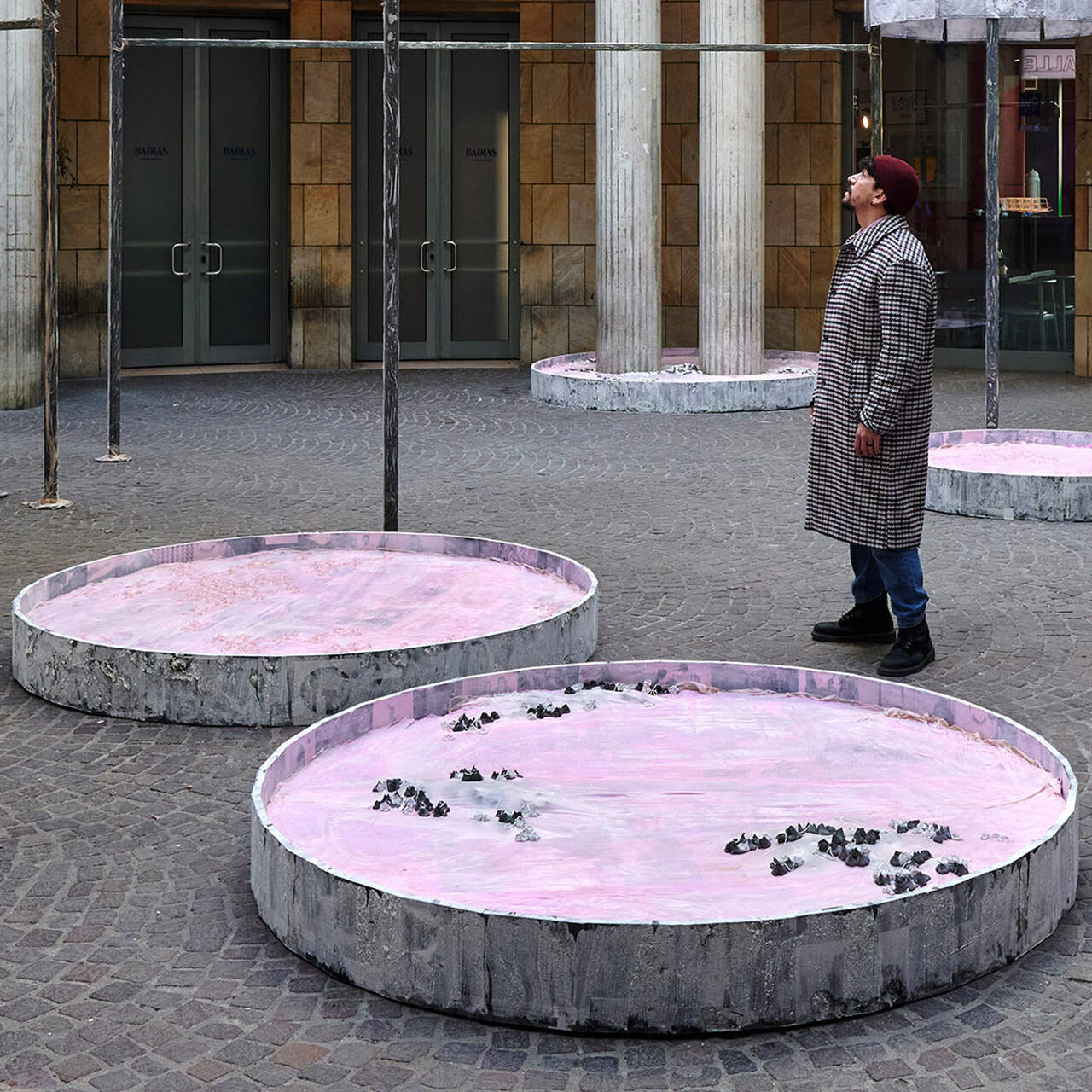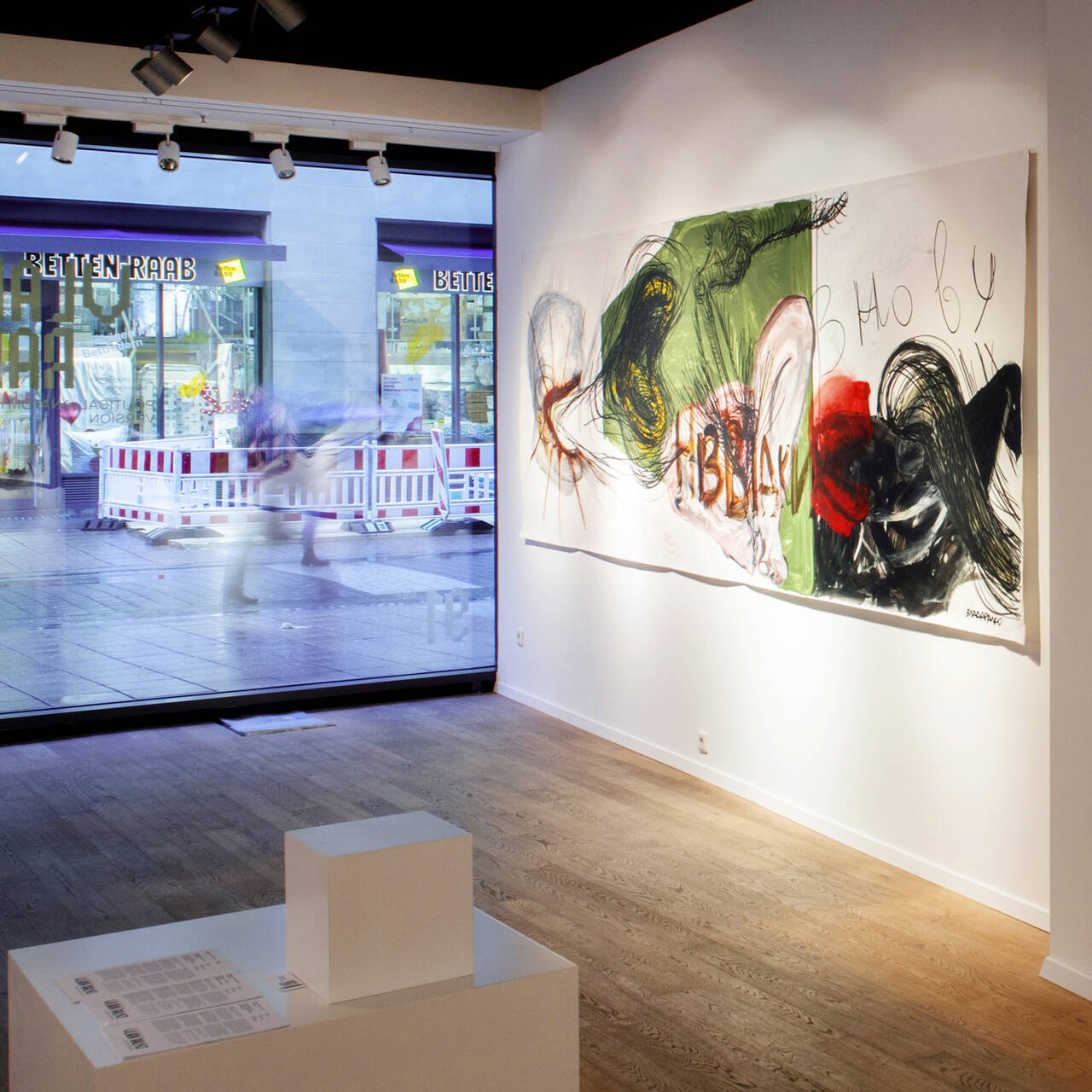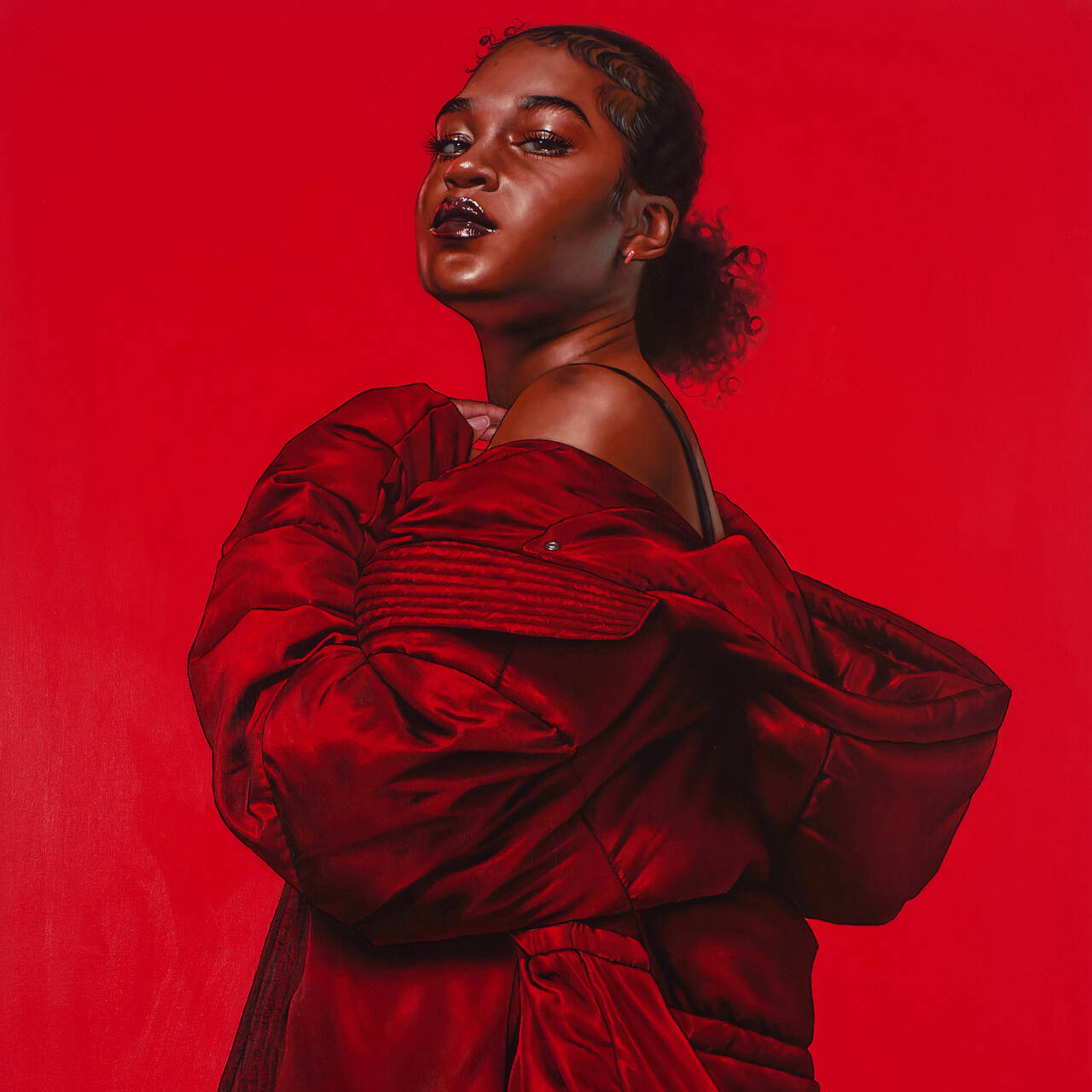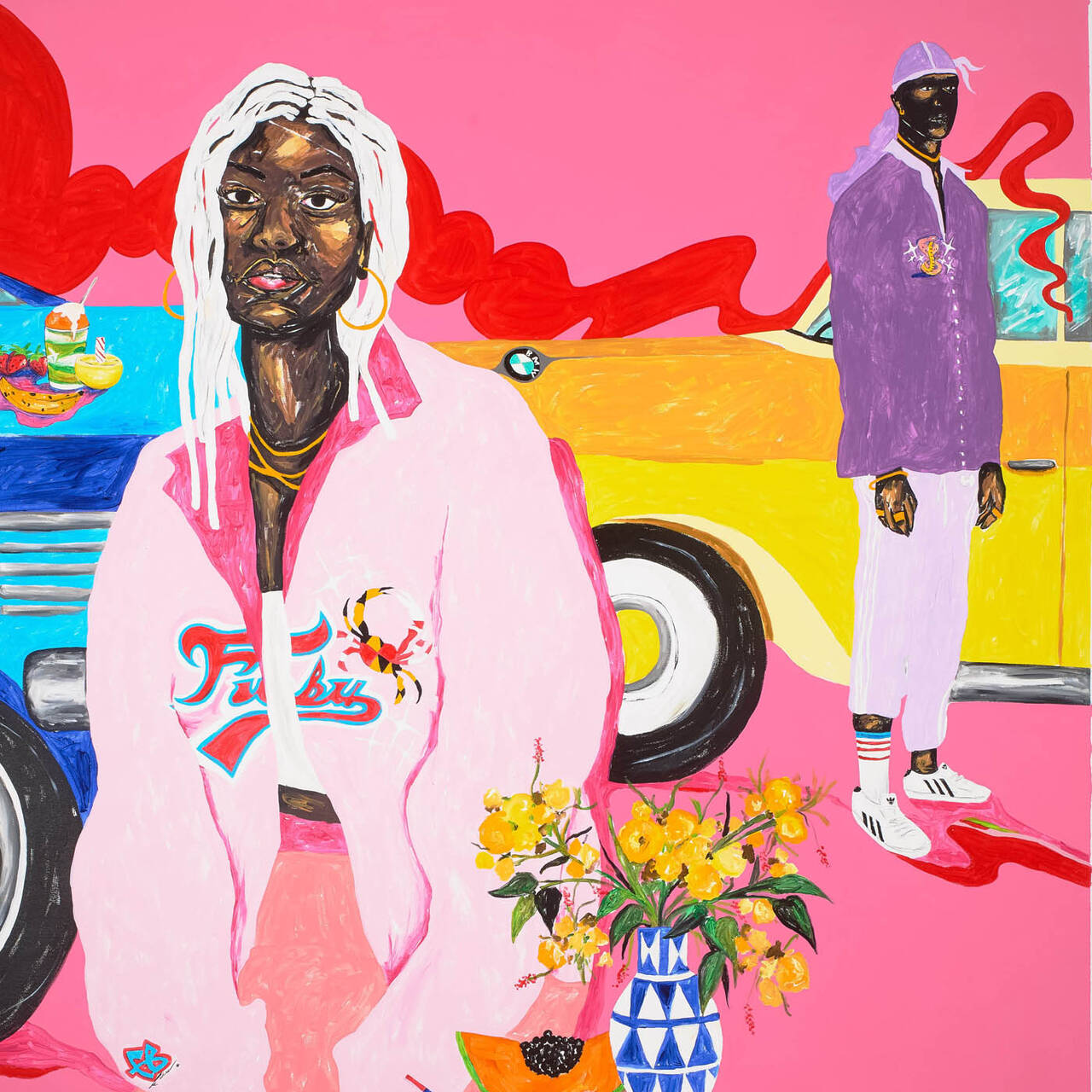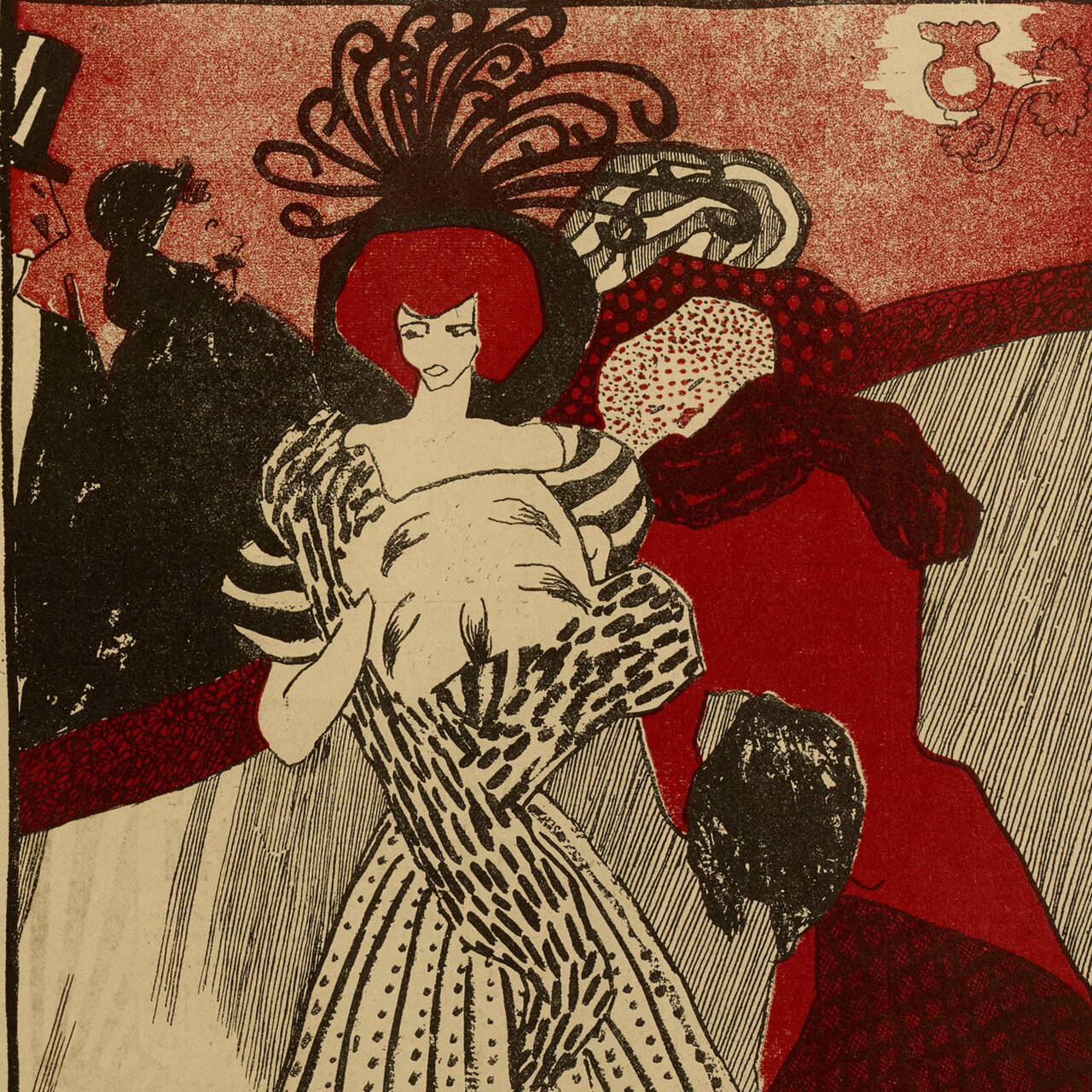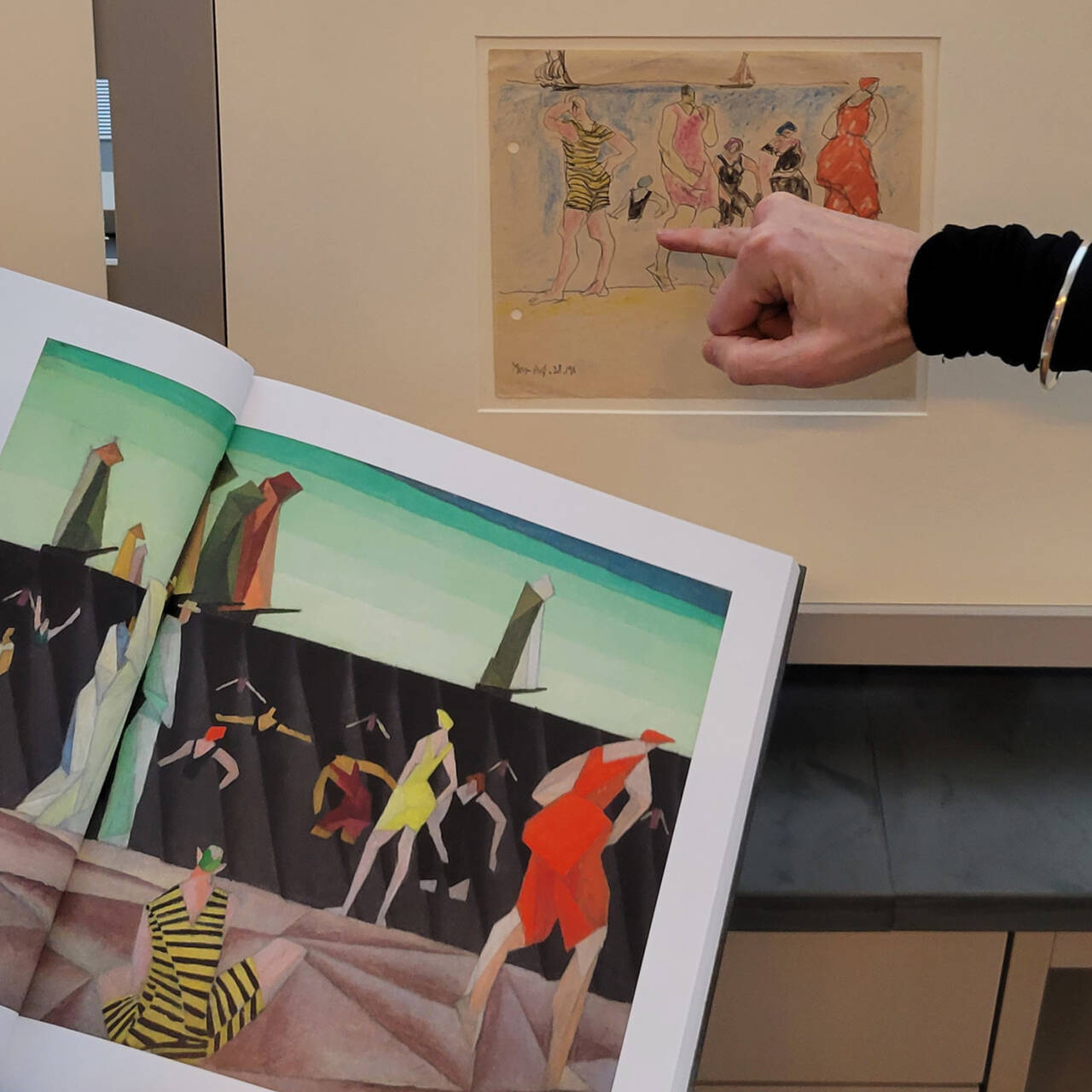Hand-made, sustainable and with summery colors: Maurice Martinez's fashion was an eye-catcher at the Frankfurt Fashion Week. We visited him in his studio and peeked over his shoulder during the preparations for the runway show.
Fashion designer Maurice Martinez has a yellow tape measure draped around his neck like a scarf when we meet him in his studio, which is located on a factory floor in Rödelheim. The clothes he designs here for his label MauMar are light, airy, festive and colorful. Mar is not only the first syllable of his last name, but also the Spanish word for sea. “I want people to think of a day at the beach when they see my fashion,” Martinez says. Nothing could be easier on this hot summer day. A fan and air conditioning keep things cool. Cold drinks help as well.
A white blouse with a beaded collar and with leaves of fabric on the sleeve, somewhat reminiscent of the plumage of a swan hangs on a clothes rack. A dressmaker's dummy wears a dress whose turquoise silk brings to mind the tail of Ariel from the Disney movie “The Little Mermaid”. Martinez tells the story of how another dress came about: “Last September, I went for a walk with my mother on a beach in the Dominican Republic – near La Romana, where I grew up. Many houses there have curtains made of loosely hanging threads of fabric in front of the doors. That day it was raining while the sun was sinking into the sea.” The poetic moment inspired Martinez to create an airy dress made of fabric threads (orange like the sun) from which bright beads hang like raindrops.
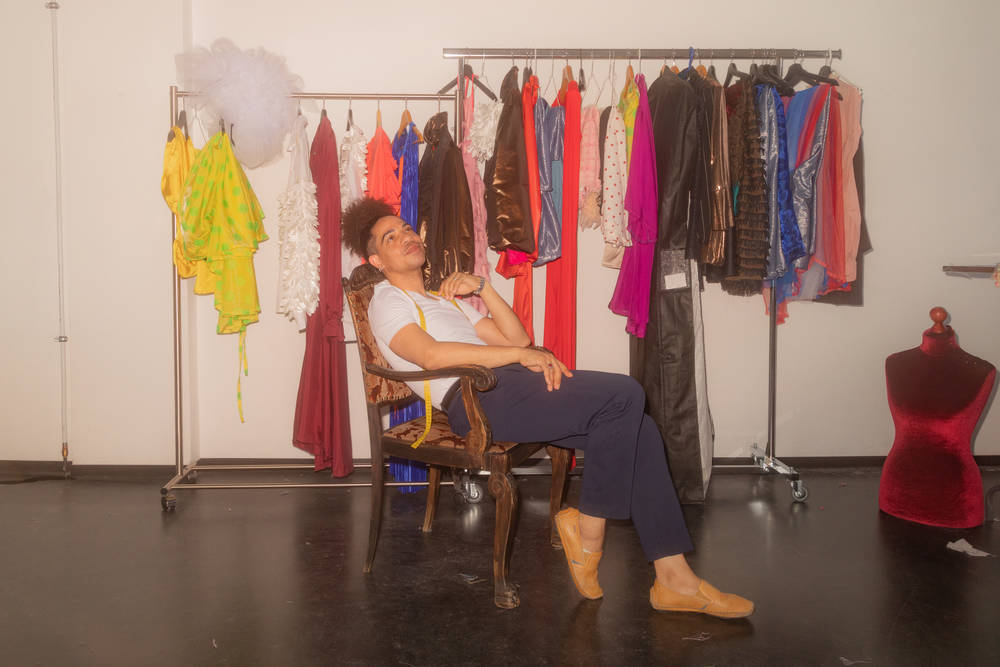
“Orderly chaos” is how Martinez describes the extraordinary state his studio is in today. On top of a crate of clothes is a stack of A4-size sedcards shrink-wrapped in plastic, taken from the file of the East West Models agency. Tomorrow, the final fitting is planned with the 16 models for a fashion show that will take place two days later during Frankfurt Fashion Week in the Carmelite Monastery. In 15 minutes, 42 outfits will then be presented. To kick things off, dancer Viktoria Nowak will step out of a filthy fishing net. “It should look as if she has just been pulled out of the sea,” Martinez explains. He wants the show to be understood as a clear criticism of the exploitation of nature.
Criticism of the exploitation of nature
Sustainability is hugely important to him. “About eighty percent of the fabrics I work with are remnants that have been discarded by other companies,” Martinez says. “I want to work with found material as much as possible and not have anything new produced. I see myself as a small fish who swims along with the whales and takes what the big ones leave for it. Of course, the quality still has to be right – especially with the lining and other areas that come into direct contact with the skin. There must be no toxic chemicals in there, of course.” He points to a costume jacket with a pepita pattern. “This fabric, for example, came from an interior design store and was originally intended for sofa cushions.”
I see myself as a small fish who swims along with the whales and takes what the big ones leave for it
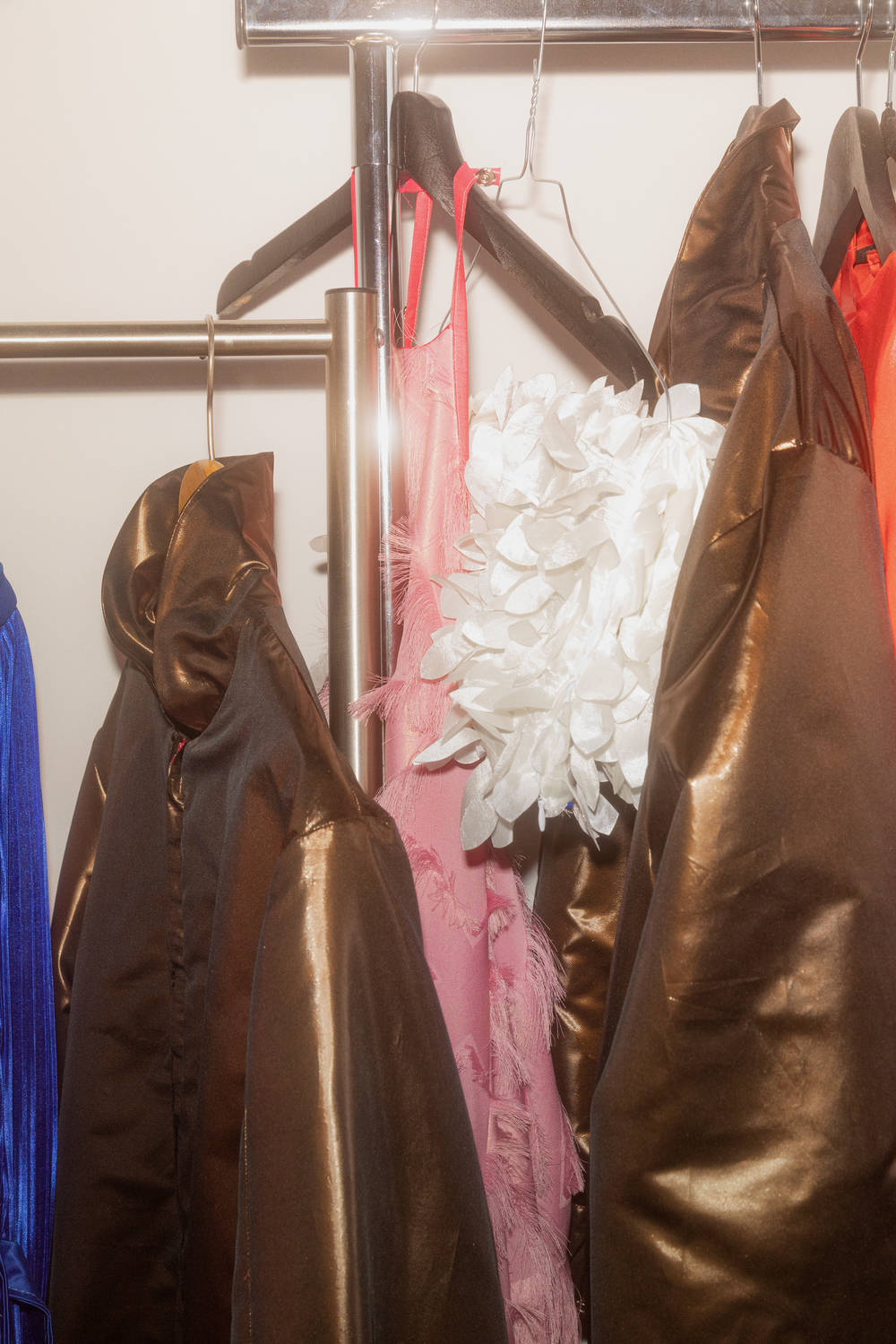
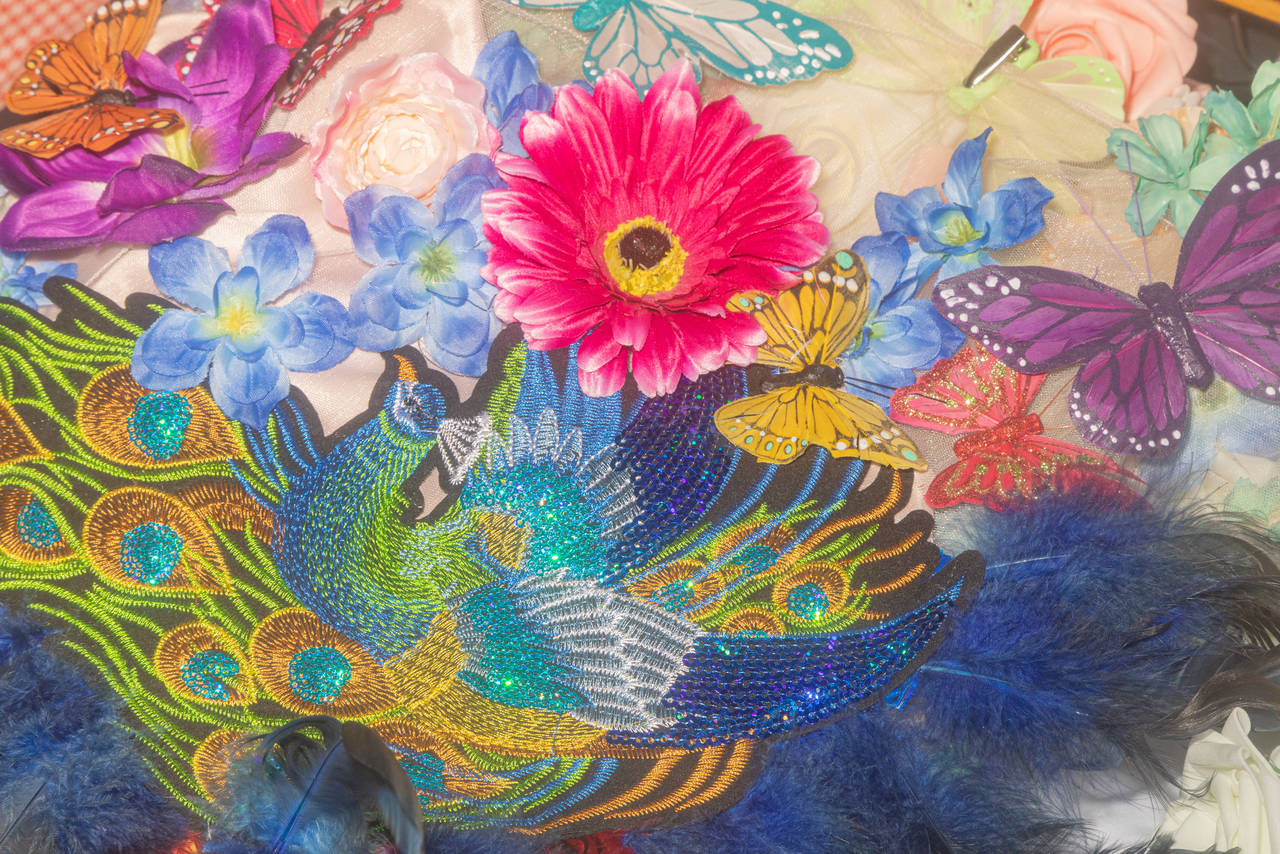
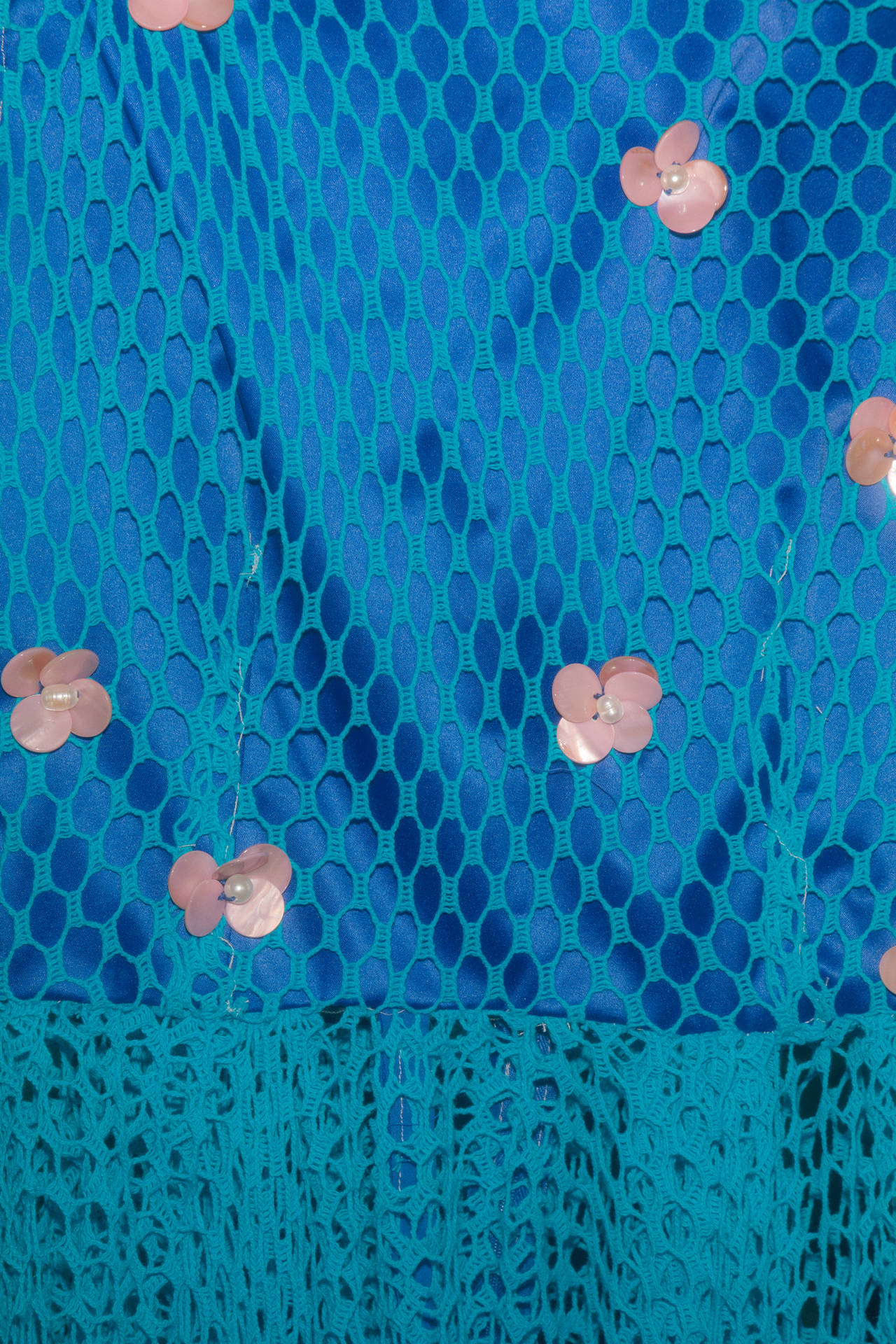
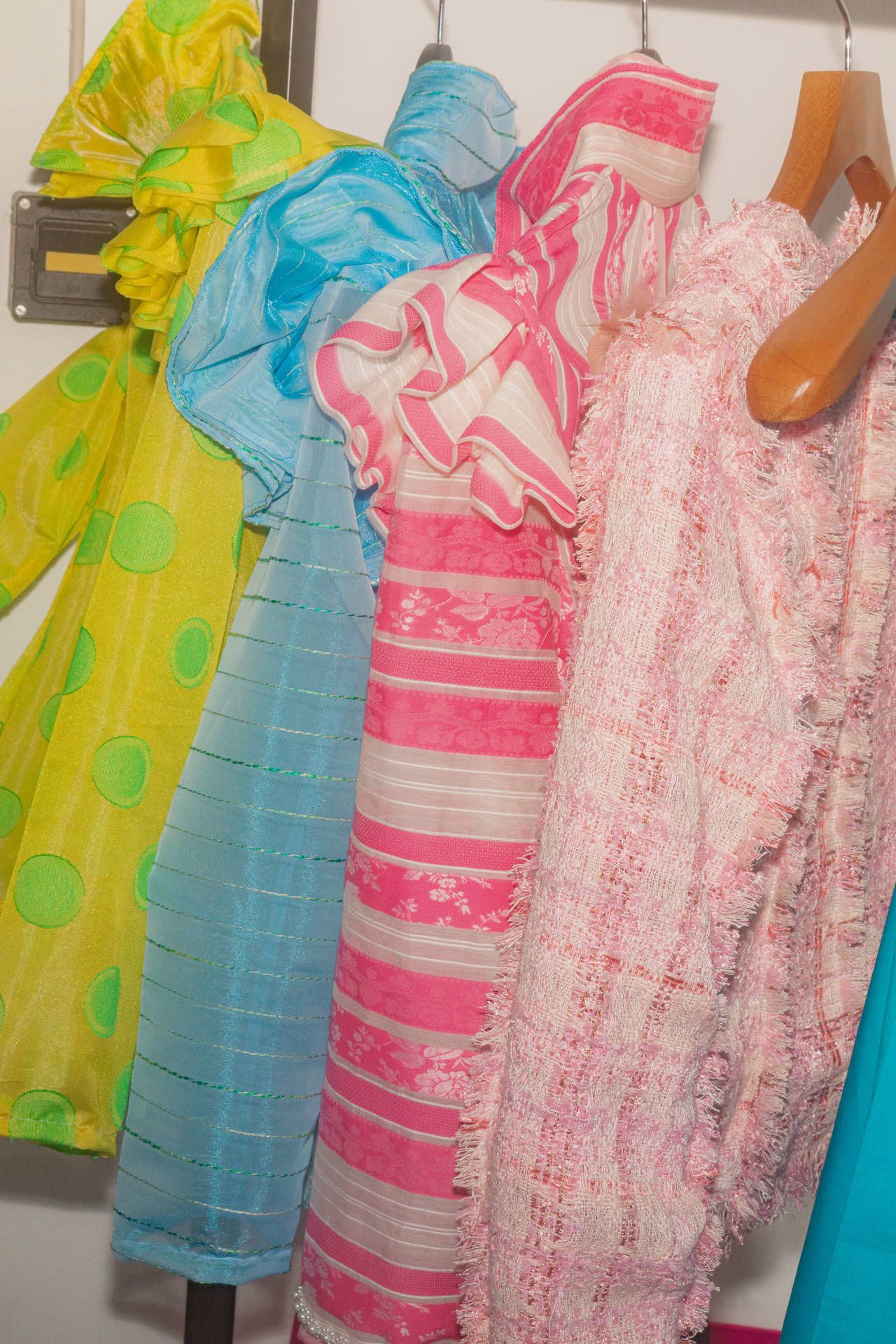
For his very first collection, in 2015, he still had the idea of having large runs produced in Eastern Europe – but couldn’t reconcile this with the experiences he had had in the Dominican Republic. “Similar to Bangladesh or Romania, there are also many sewing factories there with inhumane working conditions. I knew people who worked there and didn’t want to be part of that system.”
On a wide worktop in front of the large window lies a ring pad that Martinez uses as a sketchbook. “Ideas come to me everywhere: on the suburban train, in bed, or during my lunch break. However, my drawings tend to be small and not particularly detailed. And they don’t have to be because they’re primarily just for myself.” After all, Martinez doesn’t have his fashion sewn in factories away from home and instead makes all the pieces by hand here in the studio – supported by friends. There is always only one prototype of the dresses. Only when a customer places an order is an individual piece tailor-made for her or him. Haute couture instead of fast fashion, so to speak. There is to be one collection per year, supplemented by other individual pieces – blouses, shirts, blazers or skirts. MauMar has also recently added a few pieces for men to its range.
Ideas come to me everywhere: on the suburban train, in bed, or during my lunch break
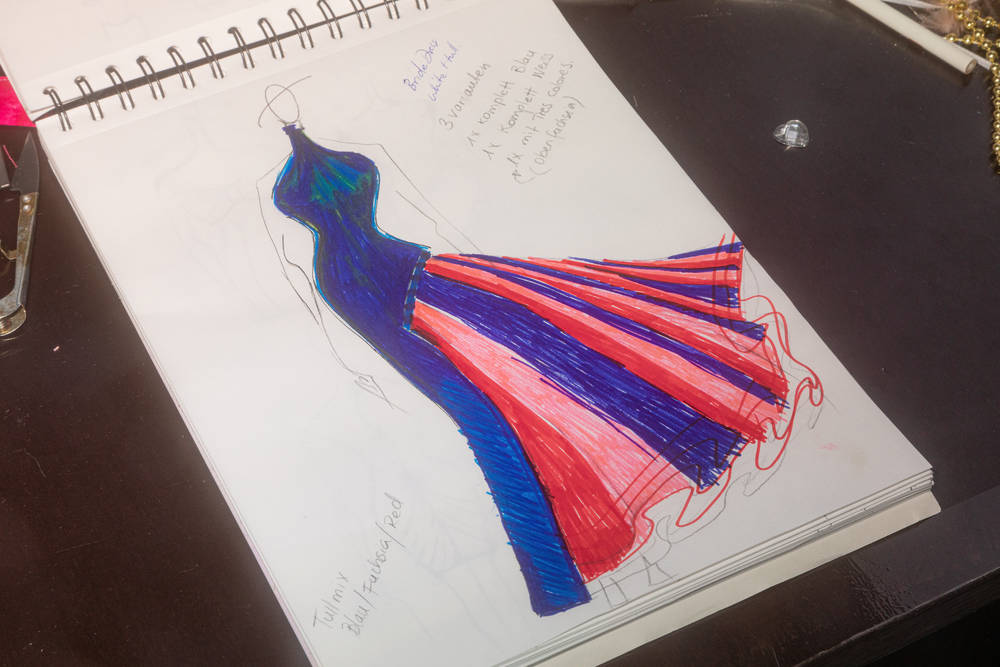
Martinez has been interested in fashion since he was a child and enjoyed drawing clothes. “I can remember that it wasn’t always easy. My oldest brother, for example, had a problem with it because he considered it unmanly. At the time, he tore up my drawings. Today he regrets that and is happy that I went my way all the same. I talked to him about it only recently.”
There was a fashion school near his hometown of La Romana at the time, which was mainly attended by students from the United States. “But I couldn't afford the tuition. So I had already written off my dream of studying fashion design.” At a performance with a theater group, he had joined as a teenager, he met friends who invited him to Frankfurt. He stayed in Germany permanently and graduated from the Frankfurt School of Clothing and Fashion.
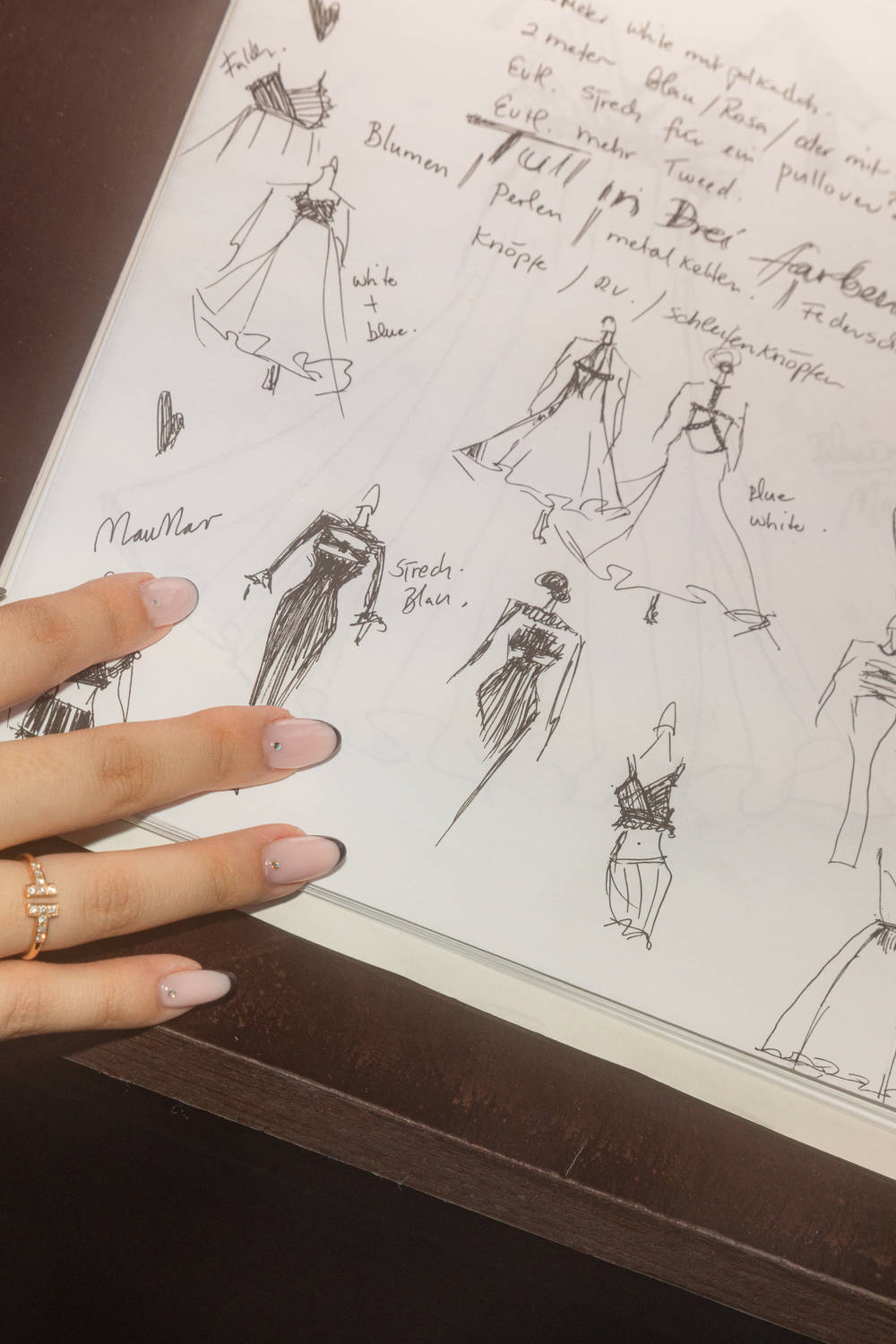
In Frankfurt, I’m at home
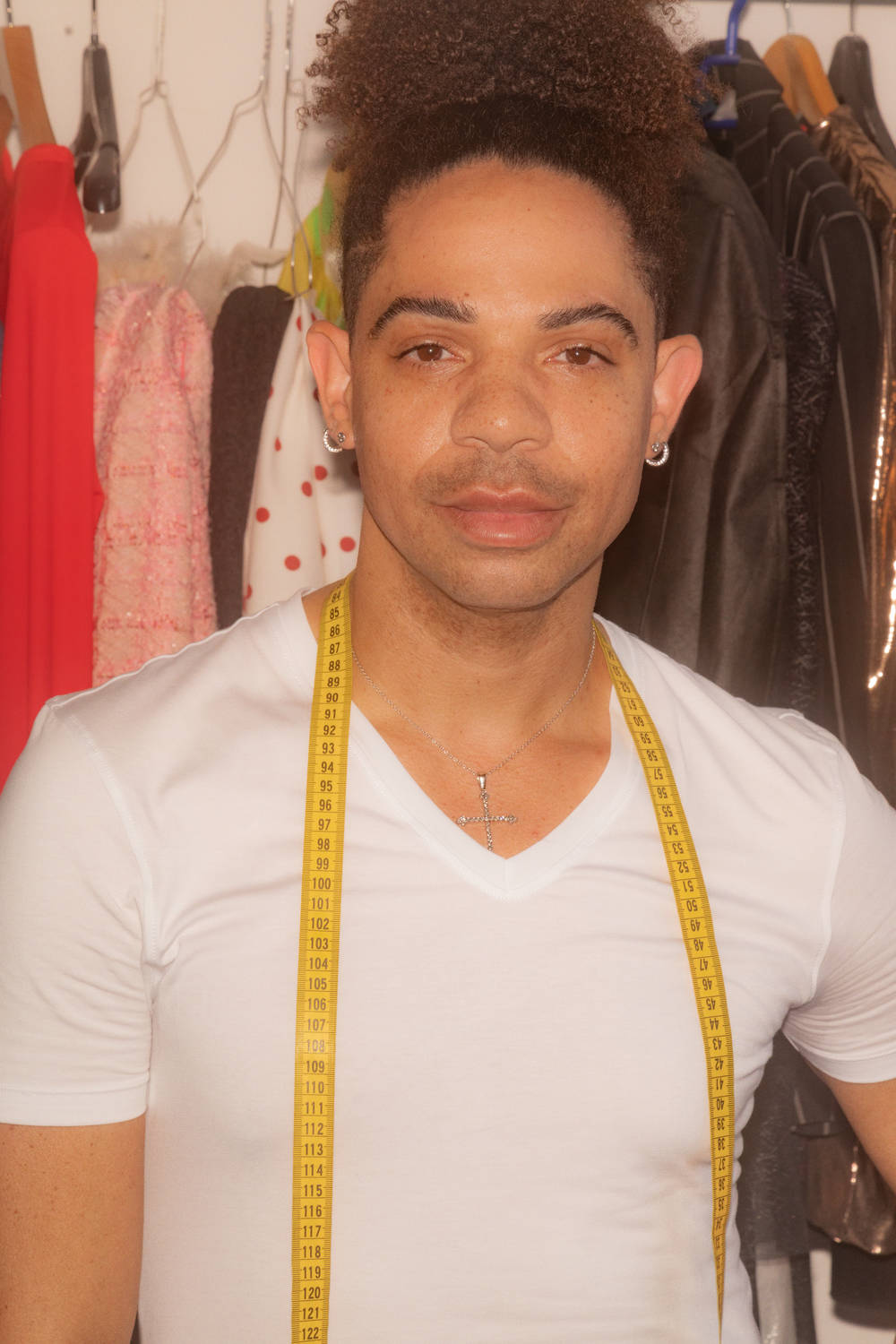
Three years later, he went to Berlin to study fashion design at BEST-Sabel, a private university. “I hesitated for a long time before taking this step. I was afraid of change – perhaps because I had already taken a big risk by moving to Germany. I asked myself: what else can I dare to do?” Martinez candidly recounts his initial doubts.
“You can’t get any more diverse than Berlin and it is rightly considered Germany’s fashion capital,” he suggests. “But I’ve always felt like just a visitor there. In Frankfurt, on the other hand, I’m at home.” After graduation, Martinez still took some time before becoming self-employed with his own label: Finding the necessary determination, that was the biggest challenge for me. You really have to be 100 percent behind it, otherwise it can't work.”

